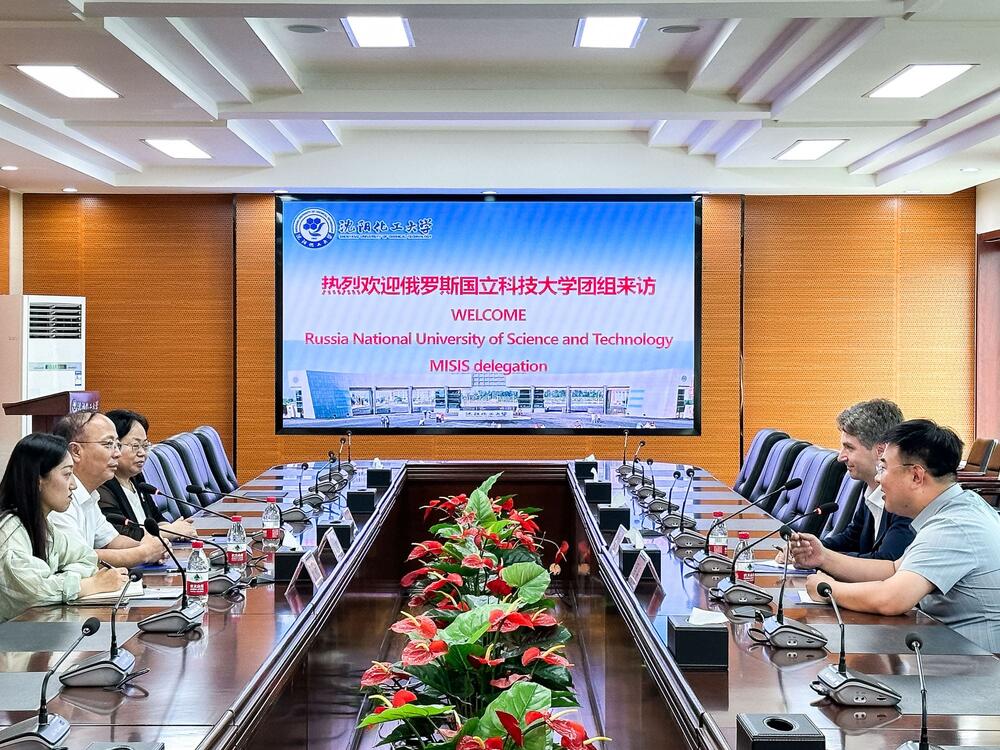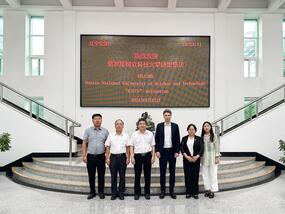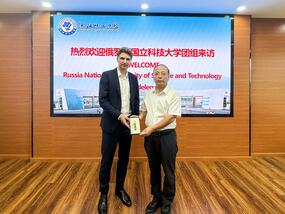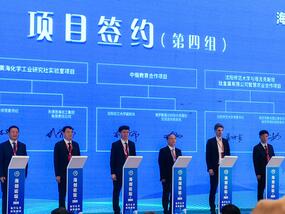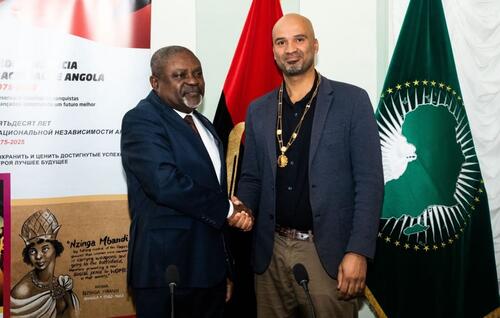On the sidelines of the International Entrepreneurship Conference in Liaoning Province, representatives from NUST MISIS and Shenyang University of Chemical Technology (SYUCT) discussed academic exchanges and internship opportunities for students and faculty. They also agreed to launch joint master’s and postgraduate programs.
Universities have common areas of scientific and academic interest, such as chemistry, materials science, metallurgy and mining. The parties plan to train personnel for industrial enterprises and conduct research that aligns with their interests.
“The Chinese school of chemistry is growing rapidly, and we were delighted to accept an invitation from our colleagues in China to visit Shenyang University of Chemical Technology in Liaoning Province. There, we got to know more about the laboratories and research being conducted at the SYUCT, and it was interesting to note that many of these projects involve refractory materials, which are in high demand among Russian enterprises. In addition, the laboratories conduct research in the field of engineering thermochemistry. Experiments are being conducted to create technologies for producing single-layer carbon nanotubes, the leader in production of which is the OCSiAl company based in Novosibirsk. We discussed possible areas for cooperation and were glad to hear that our colleagues see great potential in academic exchanges, internships, and teaching certain disciplines by NUST MISIS faculty”, — Dmitry Vasiliev, Director of International Affairs at NUST MISIS, said.
The next step will be the signing of a roadmap outlining specific events as the delegation from SYUCT visits MISIS University this year.
In addition to Shenyang University of Chemical Technology, representatives from NUST MISIS also visited Liaoning University, where they received an offer to launch joint international master’s and postgraduate programs. The two institutions agreed to establish direct contact at the institute and department levels in fields such as economics, materials science, and mining. Both parties intend to collaborate in areas such as materials science, physics, quantum engineering, and nanotechnology.
